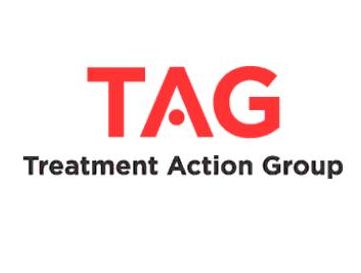
More research required to determine if century-old TB vaccine protects against SARS-CoV-2 infection or severe COVID-19 disease.
April 9, 2020 – Treatment Action Group (TAG) cautions that widespread media reports[1] that the baccille Calmette–Guérin (BCG) vaccine may be protective against COVID-19 need to be read with caution. Results from randomized, controlled clinical trials—which have only recently begun—are necessary to understand the role of this potential intervention before using BCG widely in an effort to stop COVID-19. While this research is underway, governments must ensure adequate and uninterrupted supply of BCG to protect children against TB.
BCG was first introduced for human use against tuberculosis (TB) in 1921. The most widely administered vaccine in the world—though not routinely given in the U.S. and other lower TB burden settings—it protects young children against the most severe forms of TB. This protection wanes over time, and BCG does not confer significant protection to adolescents and adults.
A single pre-peer review, ecological study has generated recent outsized optimism in the media about BCG’s potential impact on the COVID-19 pandemic.[2] The study suggested that differences in BCG vaccination policies and practices may partially explain different mortality rates from COVID-19 between countries with universal BCG vaccination programs and those without. Ecological studies have many biases and limitations, and more robust research is needed to determine BCG’s impact.
“BCG may reduce the occurrence and severity of illnesses other than TB, what scientists call ‘non-specific effects,’ so this century-old vaccine may help in the fight against COVID-19—but we don’t know that yet,” cautioned Mike Frick, TAG’s TB project co-director. “Only well-conducted, randomized, controlled clinical trials can answer that question.” A few such trials are underway.
In the meantime, healthcare workers addressing COVID-19 should only be (re)vaccinated with BCG in the context of clinical research, until ongoing studies return results justifying the wider application of BCG against SARS-CoV-2/COVID-19 outside of research settings. Although the vaccine is inexpensive, is made by multiple suppliers, and is free from patent barriers, supply is limited. “In the past, shortages of BCG for childhood immunization have resulted not only in increased rates of childhood TB, but in some cases, death – making another shortage a truly frightening prospect,” noted Lindsay McKenna, TB project co-director at TAG. “Governments must ensure sufficient and uninterrupted supply of BCG to protect those in need.” Today, this means young children who need protection against TB. In the future—if well-controlled clinical trial results provide supportive evidence—that group may also include healthcare workers, the elderly, and other populations vulnerable to COVID-19.
More background information and technical details on the use of BCG for COVID-19 can be found in this Information Note. BCG is just one of several TB vaccine constructs being studied against COVID-19, and the information note overviews the overlap between TB and COVID-19 vaccine research.
# # #
[1] See, for example, coverage in the New York Times, Bloomberg, and Forbes.
[2] Among other claims, the study found lower Covid-19 mortality in 55 middle- and high-income countries with universal BCG vaccination policies compared to 5 countries that never had universal BCG vaccination. See: Miler A, Reandelar MJ, Fasciglione K, et al. Correlation between universal BCG vaccination policy and reduced morbidity and mortality for COVID-19: an epidemiological study. medRxiv. 28 March 2020. doi: 10.1101/2020.03.24.20042937.
Source: Treatment Action Group